| International Conference on Nano Bio Intelligence |
|
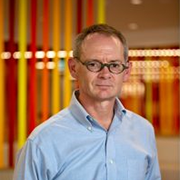 | Prof. Justin Gooding, University of New South Wales |
| Scientia Professor Justin Gooding is currently an NHMRC Leadership Fellow and a co-director of the Australian Centre for NanoMedicine. He is a Fellow of the Australian Academy of Science (FAA), the Australian Academy of Technology and Engineering, the Australian Academy of Health and Medical Sciences and the International Society of Electrochemistry. He is the inaugural Editor-in-Chief of the journal ACS Sensors. |
|
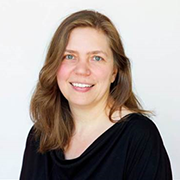 | Prof. Martina Stenzel, University of New South Wales |
| Martina Stenzel is a Scientia Professor in the School of Chemistry, UNSW, a Fellow of the Australian Academy of Science (FAA) and an ARC Laureate Fellow. Her research interest is focused on the synthesis of functional nanoparticles for drug delivery applications. Martina Stenzel published more than 350 peer reviewed papers mainly on polymer and nanoparticle design. |
|
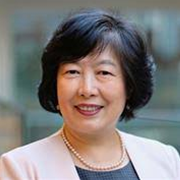 | Prof. Jie Lu, University of Technology, Sydney |
| Distinguished Professor Jie Lu, AO (Officer of the Order of Australia), FIEEE, FIFSA, FACS, Australian Laureate Fellow is an internationally renowned scientist in the area of computational intelligence, who has made fundamental and influential contributions, particularly in fuzzy transfer learning, concept drift, data-driven decision support systems, and recommender systems. Her research has huge positive implications and significant impact on her research community and for society and economics. |
|
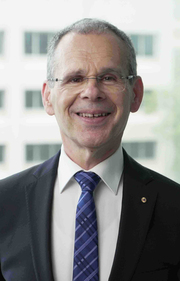 | Professor Tony Weiss, University of Sydney |
Professor Anthony (Tony) Weiss AM PhD FAA FTSE FAHMS FRSN FRACI FRSC FRSB FAIMBE FNAI FBSE FTERM is the McCaughey Chair in Biochemistry, NHMRC Leadership Fellow, and Professor of Biochemistry & Molecular Biotechnology. He leads Tissue Engineering & Regenerative Medicine in the Charles Perkins Centre at the University of Sydney.
Awards include the Order of Australia, Prime Minister's Prize for Innovation, NSW Premier’s Prize for Science & Engineering Leadership in Innovation, Eureka Prize for Innovation in Medical Research, Australian Academy of Science's Ian Wark Medal, Australian Academy of Technology & Engineering’s Clunies Ross Medal, Australian Society for Biochemistry and Molecular Biology's Lemberg Medal, Vice Chancellor’s Award for Excellence, Australasian Society for Biomaterials & Tissue Engineering’s Award for Research Excellence, Royal Australian Chemical Institute's Weickhardt Medal,Royal Australian Chemical Institute'sApplied Research Medal,Innovator of Influence Award, David Syme Research Medal, Amersham Pharmacia Biotechnology Medal, NSW Commercialization Expo Prize, Australian Innovation Challenge Award, MBSANZ Barry Preston Award, FAOBMB Entrepreneurship Award, Roslyn Flora Goulston Prize, NIH Fogarty International Fellow and Fulbright Scholar.
He is Chair of Fellows of Tissue Engineering and Regenerative Medicine, was President of Tissue Engineering and Regenerative Medicine (TERMIS), Chair of TERMIS Asia Pacific, and President of MBSANZ, and is a Fellow of the Australian Academy of Science, Australian Academy of Technology and Engineering, Royal Society of NSW, Royal Australian Chemical Institute, Royal Society of Chemistry, Royal Society of Biology, American Institute for Medical and Biological Engineering, US National Academy of Inventors, Biomaterials Science and Engineering, and Tissue Engineering & Regenerative Medicine . |
|
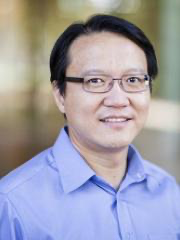 | Professor Chengzhong (Michael) Yu, University of Queensland |
Professor Chengzhong (Michael) Yu is an internationally recognised expert in materials science. His group has focused on the synthesis of functional nanomaterials specifically nanoporous materials and their applications in drug delivery, diagnostics and energy storage.
Professor Yu has over 400 publications, which have been cited over 27,890 times and resulted in an H-index of 87 (Google Scholar).
He is an Australian Research Council (ARC) Future Fellow (2009). He is the recipient of the 2015 Le Févre Memorial Prize for Chemistry (The Australian Academy of Science), the 2015 UQ Vice-Chancellor’s Research Focused Fellowship, and 2004 the second prize of the National Science Award of China 2004. He has been invited to give more than 70 plenary, keynote and invited talks. Professor Yu is a referee for more than 60 international journals and a reviewer for the ARC and NHMRC. |
|
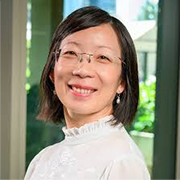 | Prof. Hongxia Wang, Queensland University of Technology |
| Professor Hongxia Wang, Georgina Sweet Australian Laureate Fellow is a leading researcher in advanced solar cells and energy storage technologies. In the past 20 years, her research has been focused on development of cost-effective optoelectrical devices (solar cells, light emitting diodes, photodetectors), supercapacitors, batteries, solar fuels as well as related integrated devices for variable environmental conditions both on earth and in outer space through innovative materials design and synthesis, device architecture design as well as in-depth understanding of the fundamental mechanism of the materials in devices. |
|
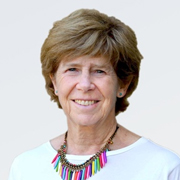 | Prof. Jennifer Gamble, University of Sydney |
| Professor Jennifer Gamble is an internationally recognised research leader in the field of endothelial cell function and holds the Inaugural Wenkart Chair of the Endothelium. Her interests lie in understanding the function of blood vessels, particularly the endothelial cells that form the barrier between the blood and the tissues. Her initial work on the action of TNF on the endothelium to support neutrophil adhesion redefined and forms the basis for our understanding of the central role of the endothelium in inflammation. |
|
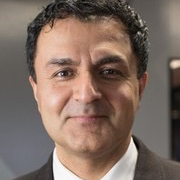 | Prof. Kourosh Kalantar Zadeh, University of Sydney |
| Professor Kourosh Kalantar Zadeh a Professor at the University of Sydney who has the responsibility of Advising on High Impact Initiatives at the Faculty of Engineering. He is also one of the Australian Research Council (ARC) Laureate Fellows of 2018. Prof. Kalantar-Zadeh is involved in research in the fields of chemical engineering, materials sciences, electronics, and medical devices. He has co-authored >500 scientific papers and books and is also a member of the editorial boards of journals including ACS Sensors, Advanced Materials Technologies, Nanoscale and ACS Nano. He is also an Associate Editor for ACS Applied Nano Materials journal. |
|
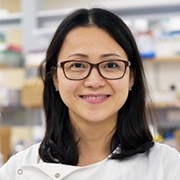 | Prof. Hang Ta, Griffith University |
| Professor Hang Ta is a Heart Foundation Future Leader Fellow and currently leads a team of 12 students and 2 postdocs working on nanomaterials for diagnosis and treatment of life-threatening diseases such as inflammatory and cardiovascular disease, cancerous diseases and blood disorder diseases. Her research addresses solutions for current problems in diagnosis and treatment of diseases. She is a pioneering bio-nanomaterials researcher developing innovative nanomaterials and magnetic resonance imaging (MRI) nanosensors for molecular imaging and drug delivery for cardiovascular disease. |
|
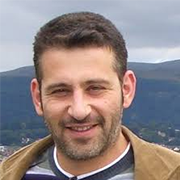 | Prof. Krasimir Vasilev, Flinders University |
| Professor Krasimir Vasilev is currently a Matthew Flinders Professor and a Professor in Biomedical Nanotechnology, and a NHMRC Leadership Fellow. He has been awarded research funding in excess of 25 million dollars and published more than 320 research papers, reviews and book chapters. His research also results in translation of research discoveries to tangible commercial outcomes. Between 2017 and 2020, a bladder cancer diagnostic technology developed in Prof. Vasilev’s laboratory was translated to the manufacturing facility of the industrial partner (Motherson Innovations Pty Ltd). This commercial development is supported by a 5 million dollar (cash) CRC-P project fundend from the industrial partner and the federal government. In another large (6 million dollars) project, he is working with an Australian implant manufacturer on translating a breakthrough antibacterial technology to hip, knee and dental implants. |
|
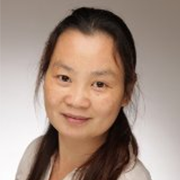 | Prof. Yuling Wang, Macquarie University |
| Professor Yuling Wang completed her PhD degree at the Changchun Institute of Applied Chemistry, Chinese Academy of Sciences in 2009. After graduation, she took up a postdoctoral position at Purdue University, working in the Bindely Bioscience Center on the project of Nanobiotechnology. After working at Purdue University for 22 months, she was awarded a prestigious Alexander von Humboldt fellowship (AvH) and worked at the University of Osnabrücker in Germany for 2 years. Following her AvH fellowship, she got an individual grant supported by the German Research Foundation (DFG), working in the University of Duisburg-Essen on the topic of multiplexed cytokines detection with plasmonic nanostructures before commencing her ARC DECRA fellowship in 2014. Towards the end of her ARC DECRA Fellow, she was appointed as a Senior Lecturer at Macquarie University in 2017 and was promoted to Associate Professor in 2020 and then Professor in 2023. She is also a Chief Investigator within ARC Center of Excellence for Nanoscale BioPhotonics (CNBP) and leads the SERS program for in vitro diagnostics. |
|
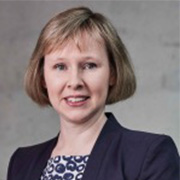 | Prof. Megan Lord, University of New South Wales |
| Megan Lord is a Professor and Australian Research Council (ARC) Future Fellow in the Graduate School of Biomedical Engineering and Associate Dean Research for the Faculty of Engineering, UNSW Sydney. Megan is recognised as a leader in the field of biomaterials (including nanomedicines and nanoparticles) and specifically the engineering of cell-biomaterial interactions for applications in drug delivery and tissue repair. Her research in underpinned by expertise in the analysis of cell-biomaterial interactions, matrix biology, and the biophysics of molecular interactions. She collaborates internationally across academia and industry. Professor Lord's research has been published in over 100 peer-reviewed publications and has been supported by multiple national grants including an ARC Australian Postdoctoral Fellowship (2010-2012) and an ARC Future Fellowship (2022-2026). Megan has mentored emerging academic and engineering leaders having supervised 22 PhD/MPhil and 140 Engineering Honours candidates to completion. |
|
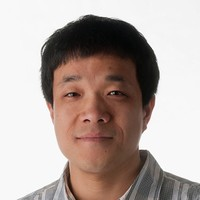 | Prof. Wenlong Cheng, University of Sydney |
| Wenlong Cheng is a professor the School of Biomedical Engineering at The University of Sydney, Australia. He is currently NHMRC Investigator Leadership Fellow and a fellow of Royal Society of Chemistry and was an Ambassador Tech Fellow in Melbourne Centre for Nanofabrication. He founded Monash NanoBionics lab at the Monash University in 2010. His research interest lies at the Nano-Bio Interface, particularly self-assembly of 2D plasmonic nanomaterials, DNA nanotechnology, electronic skins and stretchable energy devices. He has published >200 papers. He is currently the scientific editor for Nanoscale Horizon (Royal Society of Chemistry) and the editorial board members for a few journals including Nanoscale, Nanoscale Horizons, Nanoscale Advances, Advanced Sensor Research, Advanced Electronic Materials, ChemNanomat, Advanced Sensors and Energy Materials,iScience, Chemosensors, FlexTech, Wearable Electronics, and Austin Journal of Biomedical Engineering. |
|
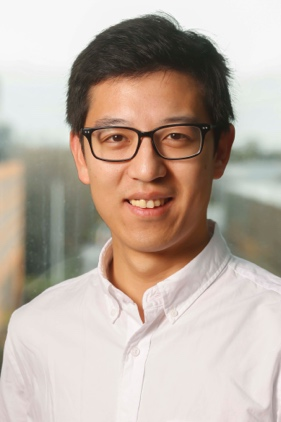 | A/Prof. Kang Liang, University of New South Wales |
| Dr Kang Liang FRSC is a Scientia Associate Professor and group leader of Nano-Micro-Bio Systems. He received his Bachelor (Hon) and PhD degrees from the School of Chemical and Biomolecular Engineering at The University of Melbourne in 2010 and 2014, respectively. After conferral of his PhD, he joined CSIRO Manufacturing under the Office-of-the-Chief-Executive scheme in 2014 as a research fellow and then became a research scientist. In 2017, he joined the School of Chemical Engineering and the Graduate School of Biomedical Engineering at UNSW Sydney. He is a Co-Chair of Australian Synchrotron Program Advisory Committee for SAXS/WAXS and BioSAXS. He is a Fellow of the Royal Society of Chemistry. He is an awardee of Victoria Fellowship in Physical Sciences in 2017. He is a former NHMRC Career Development Fellow (2019-2022), and an ARC Future Fellow (2023-2027). |
|
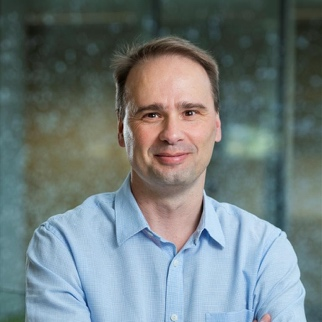 | Prof. Benjamin Thierry, University of South Australia |
| Prof Benjamin Thierry is the University of South Australia Professor of Bioengineering and a Research Leader at the Future Industries Institute. He is a NHMRC Leadership Fellow. He received his PhD in Biomedical Engineering from McGill University in 2004 and has since received prestigious awards, including two NHMRC Career Development Fellowships. Prof Thierry leads the translational Bioengineering group which aims to develop and implement novel biodiagnostic and prognostic technologies and is currently involved in several clinical translation/commercialization activities. A significant outcome of his research has been the establishment of precision cancer treatment company Ferronova Pty Ltd, Ferronova has raised over $12 million to fund several on-going clinical trials in Australia and the US. With the support of a NHMRC Development and CRC-P grants and in collaboration with Ferronova and UK-based company Diagnostic Green, Prof Thierry is currently leading a program of research aimed at developing molecular agent for image guided cancer surgery and radiotherapy. |
|
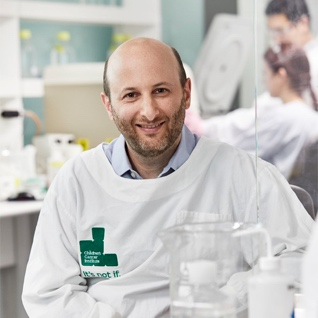 | Prof. David Ziegler, Children's Cancer Institute & UNSW |
| Professor David Ziegler is Group Leader of the Brain Tumours Group at Children's Cancer Institute, and Chair of Clinical Trials for the Zero Childhood Cancer Program, co-led by Children's Cancer Institute and Sydney Children's Hospital Randwick (SCH). He also holds a conjoint appointment with UNSW in the Faculty of Medicine. He is head of the neuro-oncology program at Sydney Children’s Hospital, and runs the clinical trials program at the Kids Cancer Centre. An important focus of David’s work is developing new clinical trials that bring research discoveries into the clinic to treat children with the most aggressive cancers. He has developed and led several innovative national and international trials for children with brain tumours, leukaemia, and solid tumours. He is the clinical lead of trials run through the Zero Childhood Cancer Program and leads the early phase clinical trials program at the Kids Cancer Centre. |
|
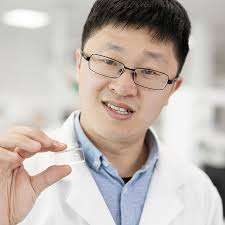 | Prof. Arnold Lining Ju, University of Sydney |
| Prof. Ju currently holds an Heart Foundation Future Leader Fellowship, working at the interface between mechanical engineering and mechanobiology. His team has pioneered multiple biomechanical nanotools, including blood clot-on-chip microfluidic devices (Nature Materials 2019), single-cell biomembrane force probes (Nature Communications 2018), and 4-D haemodynamic modelling (Nature 2021). Recently, he was awarded the prestigious mid-career Snow Fellowship. His vision is to build novel platforms that integrate advanced biomanufacturing, high-throughput biomechanical manipulation, and artificial intelligence for biobank data processing. His track record spans developing, characterising, and evaluating innovations of 3D organoids and organ-on-chips, mechanobiology, imaging probes and biosensors, bio-nanotechnology, and image-based deep learning. These large facilities should provide significant benefits to interdisciplinary research in biofabrication, biomechanics and point-of-care microtechnologies. |
|
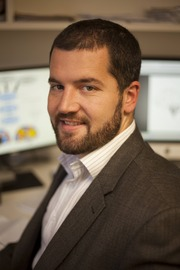 | Prof. Mac Shine, University of Sydney |
| Prof. Shine is a Robinson Fellow at the Brain and Mind Center at the University of Sydney, Australia. In my work, I use multimodal neuroimaging techniques (most notably functional MRI) to explore the systems-level mechanisms that govern cognitive function, both in health and disease. I have a particular interest in tracking brain activity patterns that reflect communication between regions of the brain, allowing for the characterization of dynamic patterns of brain activity that reflect both normal function and impairments in neuropsychiatric disease. |
|
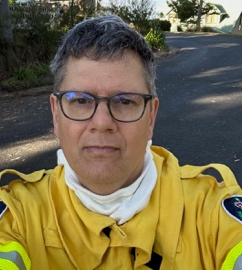 | Prof. David Thomas, University of New South Wales |
| Prof David Thomas is the inaugural Director of the Centre for Molecular Oncology at the University of New South Wales, and Chief Science and Strategy officer for Omico. As a clinician-scientist, his focus is on the application of genomic technologies to the understanding and management of cancer, particularly sarcoma. He established the not-for-profit company Omico to lead a national precision medicine program for patients with rare and early onset cancers. Prof Thomas founded the Australasian Sarcoma Study Group, a national research organisation, and established Australia’s leading adolescent and young adult cancer unit at the Peter MacCallum Cancer Centre. Prof Thomas founded and leads the International Sarcoma Kindred Study, the largest ever conducted study of genetic factors in sarcoma, now recruiting from 23 centres in the US, UK, France, India, South Korea, New Zealand and Australia. He led the first international study of denosumab in Giant Cell Tumor of bone, leading to FDA and TGA approval. He also co-led a meta-analysis of whole body MRI screening for patients with Li-Fraumeni syndrome, changing clinical practice guidelines from the NCCN, AACR and EviQ in Australia. He has over 250 research publications, including lead or senior author papers in Science, Cancer Cell, Molecular Cell, Journal of Clinical Investigation, Lancet Oncology, JAMA Oncology, and Journal of Clinical Oncology. In 2018, he was President of the Connective Tissue Oncology Society, the peak international body in his field. |
|
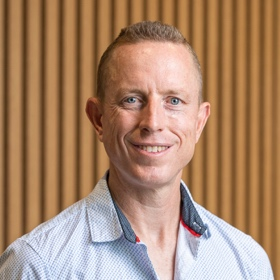 | Prof. Jeff Holst, University of New South Wales |
| Prof. Holst is a fundamental and translational cancer researcher developing new ways to profile and target metabolic pathways in melanoma, glioblastoma, breast cancer and prostate cancer. His research has focussed primarily on the role of uptake and metabolism of amino acids by cancer cells and how these integrate and cooperate with glucose metabolism to drive cell growth. His lab has developed a range of novel methods for exploring these metabolic processes in cancer, including 3D explant models for analysis of metabolism (metabolomics) and therapeutic development. Prof. Holst is the Director of Engagement in the School of Biomedical Sciences at UNSW, and Director of the Adult Cancer Program. In addition, he is part of the Strategic Advisory Committee of the UNSW Cancer Theme. |
|
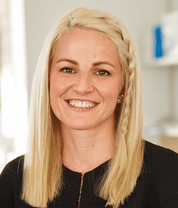 | Prof. Marina Pajic, Garvan Institute of Medical Research |
| Prof. Pajic has established unique personalised medicine projects for pancreatic cancer, supported by three fellowships from Cancer Institute NSW. Since 2013 Marina has led the Personalised Cancer Therapeutics Lab at the Garvan Institute of Medical Research. Understanding the role of “-omic” alterations in cancer progression and treatment failure with a view to developing novel effective therapeutic approaches are the focus of her research. She takes an active role in training emerging scientists (Honours and PhD projects). Marina engages and communicates regularly with the public through Garvan’s public events. She is an EACR ambassador and co-director of the Australasian Pancreatic Club. |
|
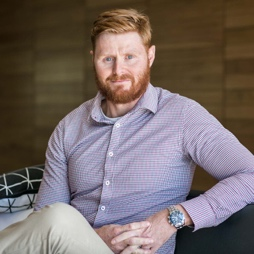 | Prof. Matt Dun, University of Newcastle |
| Professor Matt Dun is a National Health and Medical Research Council (NHMRC) Emerging Leadership Fellow (2020-2024) and a Defeat DIPG Chadtough New Investigator (2020-2021). Matt is a medical biochemist and Professor of Paediatric Haematology and Oncology Research the University of Newcastle, Australia, and a Deputy Director of the HMRI Precision Medicine Research Program. His position and research has been supported by state and/or national funding bodies continuously since 2012, as well as supplemented by philanthropic and industry contributors throughout. Dr Dun has 98 refereed journal articles and book chapters, with an accompanying 3600 citations and H-index of 35. In his short career, Matt has been a Chief Investigator on three NHMRC grants including CIA of the Investigator Grant fellowship and two Cancer Australia Grants. Matt’s total research income since PhD award in 2012 is >$19.7 million. Matt is an invited editor to Frontiers of Oncology, Associated Editor of Neuro-Oncology and is a Peer Review panelist for the NHMRC Investigator Grants 2019 - and many others. |
|
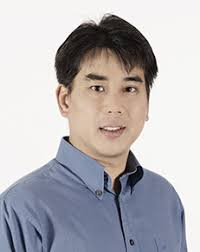 | Prof. Leslie Yeo, RMIT University |
| Prof. Yeo is a scientist and engineer with a passion for the discovery and elucidation of novel physicochemical phenomena, and their translation into practical technology for real world applications. Leslie was the recipient of the 2007 Young Tall Poppy Science Award from the Australian Institute for Policy & Science ‘in recognition of the achievements of outstanding young researchers in the sciences including physical, biomedical, applied sciences, engineering and technology’, both the Dean’s and Vice-Chancellor’s awards for excellence in early career research at Monash University, and the Vice-Chancellor’s award for research excellence as well as the university’s award for research innovation at RMIT. His work on microfluidics has been featured widely in the media, for example, on the Australian Broadcasting Corporation’s science television program Catalyst, 3RRR and SBS radio broadcasts, and in various articles in The Economist, New Scientist and The Washington Times, in addition to being highlighted in Nature and Science. |
|
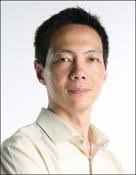 | Prof. Qingyu Yan, Nanyang Technology University |
| Prof. Yan is currently a professor in School of Materials Science and Engineering in Nanyang Technological University. He obtained his B.Sc. in Materials Science and Engineering, Nanjing University. He finished his Ph.D. from Materials Science and Engineering Department of State University of New York at Stony Brook. After that, He joined the Materials Science and Engineering Department of Rensselaer Polytechnic Institute as a postdoctoral research associate. He joined School of Materials Science and Engineering of Nanyang Technological University as an assistant professor in early 2008 and became a Professor in 2018. He is currently the Chair of the Electrochemical Society, Singapore Section. He is a fellow of Royal Society of Chemistry Since 2018. He has published > 300 papers on the research area: (1) battery develepoment; (2) thermoelectric materials and (3) electrocalytic process for energy conversion. |
|
|